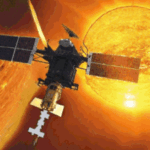 The leader of India’s Space Research Organization (ISRO), S Somanath, disclosed during an interview that he received a cancer diagnosis on the same day the country’s inaugural solar observatory, Aditya-L1, was launched. Despite the excitement surrounding the launch of the Aditya-L1 mission on September 2, Somanath’s health took an unexpected turn.
The leader of India’s Space Research Organization (ISRO), S Somanath, disclosed during an interview that he received a cancer diagnosis on the same day the country’s inaugural solar observatory, Aditya-L1, was launched. Despite the excitement surrounding the launch of the Aditya-L1 mission on September 2, Somanath’s health took an unexpected turn.
Discovery of Cancer and Treatment Journey
In a Malayalam interview with Tarmak Media House, Somanath recounted, “I underwent a scan on the morning of the Aditya-L1 launch day,” revealing the discovery of a growth in his stomach coinciding with the launch. Following the diagnosis, he underwent surgery and chemotherapy, sharing the news with his family, who initially experienced shock. However, he now views his cancer journey as a surmountable challenge rather than a hindrance.
ISRO Chief Somanath’s Resilience
 Somanath’s resolve is evident as he states, “Now, I perceive cancer and its treatment as a solution. There is a message that it is not incurable. I will be undergoing regular annual check-ups and scans. Currently, I am completely cured and have resumed my duties.”
Somanath’s resolve is evident as he states, “Now, I perceive cancer and its treatment as a solution. There is a message that it is not incurable. I will be undergoing regular annual check-ups and scans. Currently, I am completely cured and have resumed my duties.”
Key Insights about HDGC Cancer
- Hereditary diffuse gastric cancers (HDGC) constitute a small percentage of stomach cancers and are caused by the CDH1 gene mutation.
- HDGC is associated with an increased risk of lobular breast cancer and diffuse stomach cancer, and those with the genetic mutation have a higher likelihood of developing stomach cancer at a young age.
- HDGC can be challenging to diagnose because some common imaging tests may not detect it until the cancer has advanced.
- Symptoms of stomach cancer include constant abdominal discomfort or pain, vomiting, nausea, feeling full after eating small amounts, difficulty swallowing, unintended weight loss, chronic indigestion or heartburn, fatigue, blood in the stool, and abdominal swelling or fluid buildup.

- Older adults are more susceptible to stomach cancer due to factors such as weakened immune systems, slower recovery, and coexisting medical conditions.
- Early detection and appropriate treatment are crucial for managing stomach cancer in older adults.
- Offspring of parents with the CDH1 gene mutation have a 50% chance of inheriting the mutation, according to the US National Cancer Institute.










